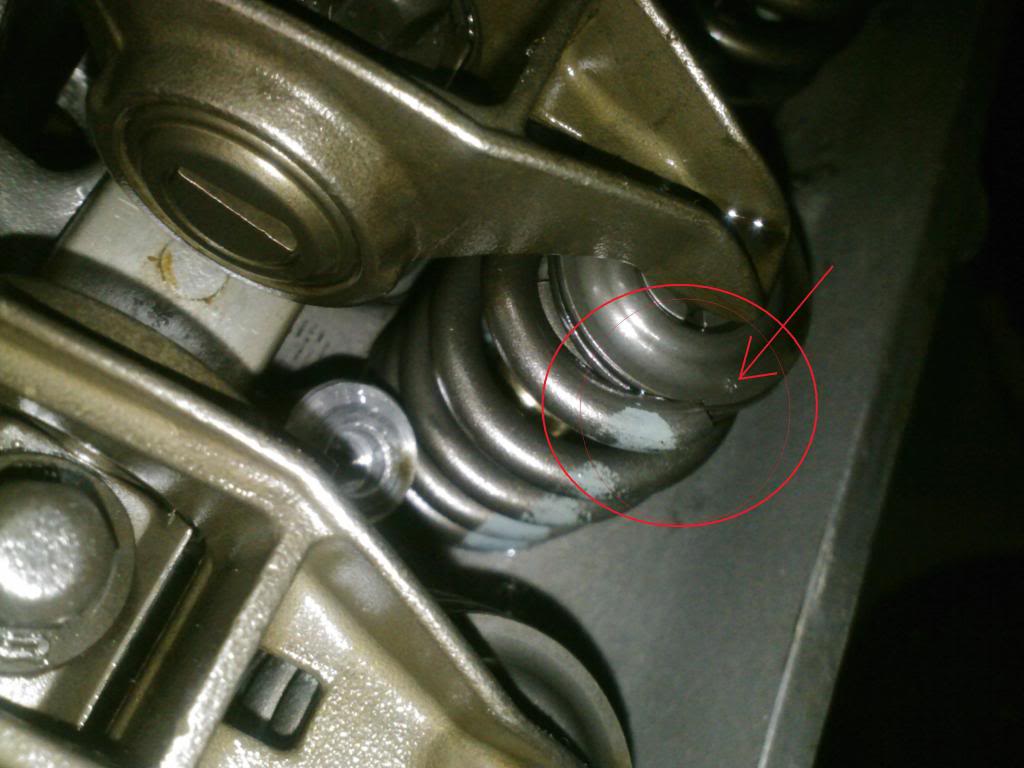As an Amazon Associate, I earn from qualifying purchases at no extra cost to you.
What are the Symptoms of Bad Valve Springs?
Symptoms of bad valve springs can include rough idling and decreased engine performance. Other signs may include engine misfires and unusual engine noises.
When experiencing these issues, it is important to address them promptly to prevent further damage to the engine. Bad valve springs can impact the overall performance and efficiency of the vehicle, leading to potential safety concerns if not resolved in a timely manner.
We will explore the common symptoms of bad valve springs, the potential causes behind these issues, and the necessary steps to take to rectify the problem. By understanding these indicators, car owners can better maintain their vehicles and avoid costly repairs in the future.
Common Symptoms Of Bad Valve Springs
Loss Of Engine Power
One of the common symptoms of bad valve springs is a loss of engine power, resulting in sluggish acceleration and overall reduced performance.
Misfiring
Misfiring is another common indicator of faulty valve springs. A misfiring engine can lead to rough idling, jerking or surging while driving, and decreased fuel efficiency.
Excessive Engine Noise
Excessive engine noise can be a sign of bad valve springs. This may include ticking or tapping sounds from the valve train, indicating potential issues with the valve springs.

Credit: www.aa1car.com
Causes Of Bad Valve Springs
Causes of Bad Valve Springs:
Wear And Tear
Normal operation can lead to wear and tear on valve springs, causing them to weaken over time.
Faulty Installation
Improper installation of valve springs can prevent them from functioning correctly, leading to issues.
Overheating
Excessive heat in the engine can cause valve springs to weaken and lose their tension.
How To Diagnose Bad Valve Springs?
Valve springs play a crucial role in ensuring proper engine performance. Recognizing the symptoms of bad valve springs is key to maintaining your vehicle’s health.
Compression Test
Performing a compression test can pinpoint issues with the valve springs. Test individually to determine if any are weak or faulty.
Visual Inspection
Inspect the valve springs for any signs of wear, corrosion, or damage. Look for inconsistencies in length or tension.
Listening For Strange Noises
Pay attention to unusual engine noises like clicking or tapping, which can indicate problems with the valve springs.

Credit: www.wilhelmautomotive.com
See Also: What are the Signs of a Bad Evaporator?
Preventing Valve Spring Issues
Preventing valve spring issues is crucial to maintaining the health and performance of your engine. By being proactive and implementing proper maintenance measures, you can effectively prevent potential problems and ensure the longevity of your valve springs.
Regular Maintenance
Regular maintenance plays a vital role in preventing valve spring issues. It involves periodic inspection of the valve springs for any signs of wear or damage. Additionally, cleaning and lubricating the valve spring components can help in maintaining their optimal performance. Scheduled inspections should be part of your maintenance routine to catch any potential issues before they escalate.
Using High-quality Parts
Using high-quality parts for your valve springs is essential. Invest in reputable brands and ensure that the materials used are of premium quality. By using superior parts, you can minimize the risk of premature wear or failure of the valve springs, thereby preventing potential issues that may arise due to substandard components.
Proper Installation
Proper installation of valve springs is key to preventing issues. Following manufacturer guidelines and utilizing the correct tools for installation is crucial. Improper installation can lead to uneven pressure on the springs, causing them to wear out faster. Ensure that the valve springs are installed with precision and accuracy to avoid any potential problems in the future.

Credit: ls1tech.com
Conclusion
Recognizing the symptoms of bad valve springs is crucial for maintaining the performance of your car engine. By keeping an eye out for signs such as misfiring, rough idling, and decreased fuel efficiency, you can address potential issues early on.
Regular maintenance and timely repairs can help prevent further damage and prolong the lifespan of your vehicle. Understanding these symptoms empowers you to take proactive measures to ensure your engine's health and performance.


